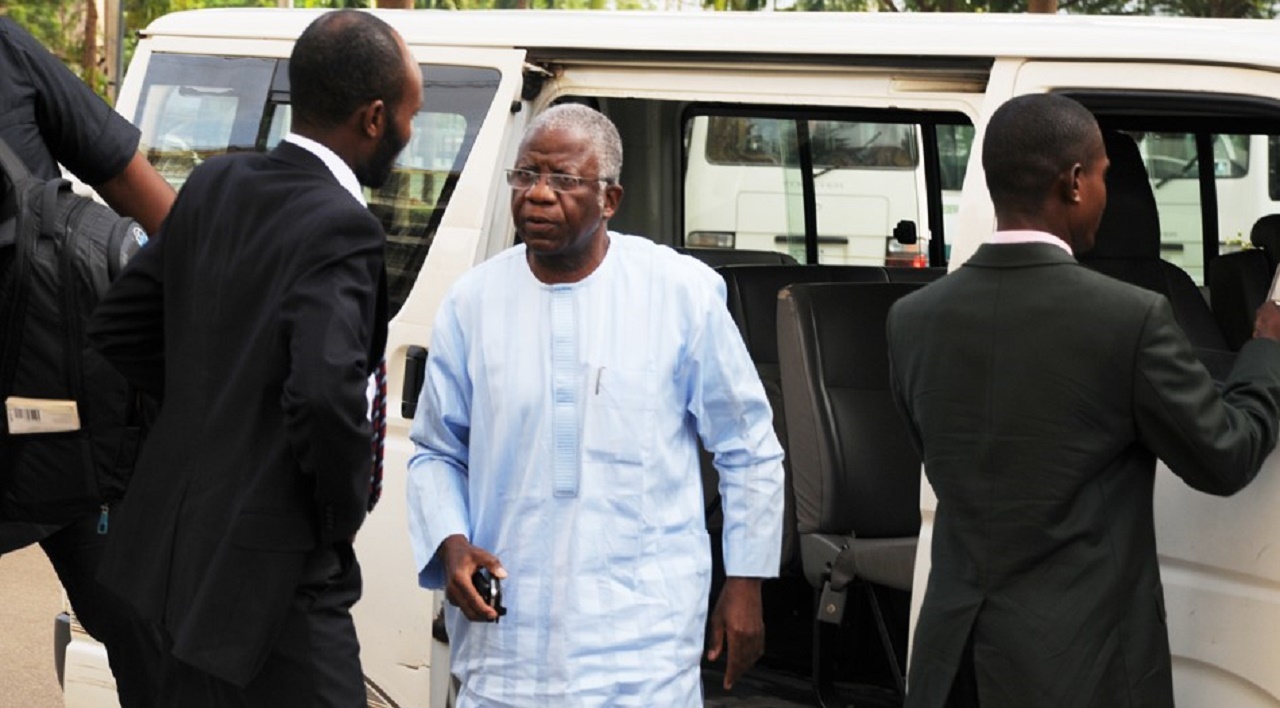Alleged N190m fraud: Court quashed criminal charges against Oronsaye

An Abuja High Court In Maitama, on Tuesday discharged former Head of Service of the Federation, Chief Steven Orosanye, of all the seven-count charges brought against him by the Federal government.
Justice Olasumbo Goodluck upheld the defendant’s no case submission while ruling on the application filed by Oronsaye.
Ruling on the matter, Justice Goodluck noted that the no-case submission filed by the defendant raised issues with colouration of preliminary objection.
According to her, a party could challenge the competence of jurisdiction of the court at any time but with the ACJ Act, could not be entertained at the interlocutory stage.
She submitted that the court was precluded from taking objection on the ground of defective charges at interlocutors stage.
While noting that Section 305 of the ACJA made provisions for no-case submission, Justice Goodluck, however, declared that in determining such application, the Court had to consider whether the essential element of the case has been proved; whether there was evidence linking the defendant with the commission of the offence charged with and whether the evidence so far laid was such that no reasonable court or tribunal could convict on it.
She further stated that the court could also use any other ground in which a prima facie case had not been established against the defendant for him to be called upon to answer in considering such application.
The judge stated that though there was copious evidence from some of the witnesses called by prosecution that Orosanye collected money from the Central Bank of Nigeria (CBN) and the Office of the National Security Adviser (ONSA), which was entrusted to him, she was unable to hold that he converted same to his personal use.
She added that there was no evidence laid before the court regarding the funds collected from CBN and ONSA being used for his personal benefit.
She noted the prosecution ought to have called one Sunday Odey, Personal Assistant to Orosanye and Friday Ololo, both of whom were withdrawing from the Access Bank, where he deposited the funds, to testify for it.
According to Justice Goodluck, the prosecution had failed to prove to ingredients in S311 of the Penal Code to establish that the defendant was a public officer as of the time he headed the committee.
She further submitted that there was contradictory evidence by the prosecution witnesses on whether the defendant was still the Head of Service of the Federation as of the time he chaired the committee.
She held that without a case made against the defendant, he could not be called upon to answer to the charge, submitting that the burden of proof laid on the prosecution to prove not the innocence of the defendant.
“I have looked through the case and I am unable to see any justifications for this case,” she declared.
“No evidence has been laid on the allegation that he converted the fund of his committee for his personal use; no evidence has been laid that the defendant violated the extant law on financial regulation; no evidence to establish that the defendant was a public officer,” she stated.
The judge declared that the court could not discredit the evidence that did not exist, adding that, “it will suffice to say that there is no evidence linking the accused with the statutory element and ingredients’ of the offence with which he is charged.
“The court of trial must have as matter of law discharge him because it has no business scanting for evidence that is no where to be found. This is not consistent with the adversary system of the Administration of Criminal Justice Act.
“There is no need to proceed with the defence. The defendant is hereby discharged.”
Orosanye was arraigned by the Economic and Financial Crimes Commission (EFCC) for allegedly diverting the sum of N190m for personal use, when he was chairman of the Presidential Committee on Financial Action Task Force, set up by the immediate past administration of President Goodluck Jonathan.
He was alleged to have contravened the provision of Section 311 of the Penal Code, punishable under Section 315 of the same Code.
The prosecution has called six witnesses in the trial that begun in 2015 in which the witnesses alleged complicity of the former Head of Service of the Federation.
But following the closure of the prosecution’s case on November 15, 2016, the defendant filed a no-case submission on December 9,2016, declaring that the prosecution failed to establish a case against him that would warrant him to open his defence.
But instead of opening his defence ,he filed a no-case submission motion on March 2.The
lead counsel to Orosanye, Chief Kanu Agabi (SAN), in arguing the no case submission motion, argued that the evidence adduced before the court against the defendant failed to link him to the alleged crimes.
Agabi pointed out that there were omissions of essential elements in the charges against his client and said on that account the charges were imperfect and failed.
He said, the prosecution had initially filed a two-count charge against the defendant, only for it to later, on May 19, 2016, amend it to seven, declaring that that was a sign that something was wrong with the charge from the beginning.
The counsel for the defendant further argued that the prosecution failed to either specify the amount that was entrusted to Orosanye or the mandate of the committee the defendant chaired, adding that there was no evidence of personal use of the fund that the defendant was accused of but mere allegations.
Agabi submitted that there was no offence proven by prosecution to warrant the defendant to enter defence and therefore urged the court to grant his no-case submission.
In his response, the prosecuting counsel, Mr Offem Uket, told the court that the prosecution had proved its case beyond reasonable doubt that the defendant should enter his defence.
Uket argued that it was not right to bring up the issue of imperfection of charges now that it was against the provisions in Sections 220 and 221 of Administration of Criminal Justice (ACJ) Act, 2015.
According to him, the prosecution had been able to prove a prima facie case against Orosanye and, therefore, urged the court to dismiss the no-case submission by the former Head of Service of the Federation.








